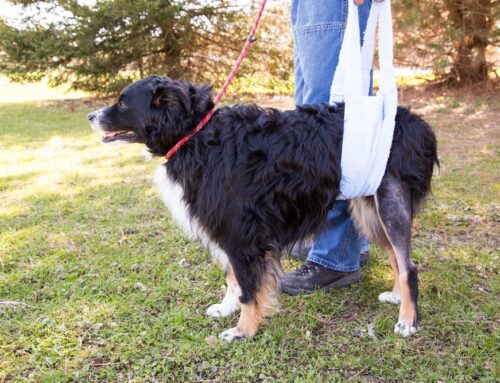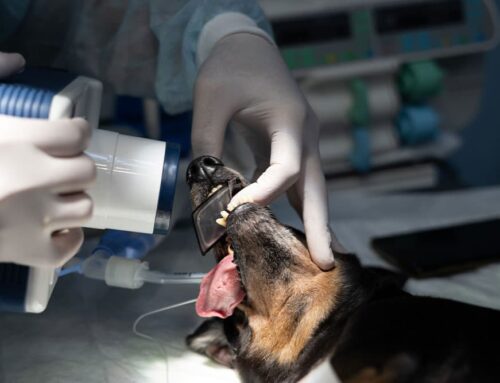What Are Seasonal Allergies in Pets?
Seasonal allergies in pets occur when environmental allergens, such as pollen, mold spores, and dust mites, trigger an immune system overreaction. In San Pedro, California, pets are often exposed to grass, tree pollen, and airborne irritants, leading to seasonal allergy symptoms. Unlike food or contact allergies, which can persist year-round, seasonal allergies tend to flare up during specific times of the year.
The Medical Perspective on Seasonal Allergies
Untreated seasonal allergies can escalate into chronic conditions like atopic dermatitis, respiratory distress, and secondary skin infections. Repeated exposure to allergens sensitizes the immune system, making future reactions more severe. Early intervention and proper management can prevent long-term health complications and improve your pet’s comfort.
Recognizing Symptoms of Seasonal Allergies in Dogs and Cats
Pets with seasonal allergies may display varied symptoms, ranging from mild irritation to significant discomfort:
- Persistent itching and scratching – Leads to skin irritation, hair loss, and secondary infections.
- Red, inflamed skin – Commonly seen on the ears, paws, belly, and armpits.
- Frequent licking or chewing on paws – A telltale sign of allergic reactions in dogs.
- Watery eyes and nasal discharge – Indicates possible respiratory allergies.
- Sneezing, coughing, or wheezing – More common in cats but also affects dogs.
- Behavioral changes – Increased restlessness, irritability, or reduced playfulness due to discomfort.
For an in-depth look at allergy symptoms and treatments, refer to Dog Allergies: Symptoms & Treatment – AKC.
Diagnosing Seasonal Allergies in Your Pet
At South Shores Pet Clinic, we use advanced diagnostics to confirm allergies and develop an effective treatment plan. Diagnosis methods include:
- Skin tests – Pinpoint specific allergens through controlled exposure.
- Blood tests – Detect allergen-specific antibodies in your pet’s system.
The Importance of Early Diagnosis
Without timely treatment, allergy symptoms can escalate into chronic conditions such as:
- Recurring ear infections
- Skin thickening and pigmentation changes
- Chronic inflammation leading to immune suppression
For diagnostic information, visit our Diagnostics Services page.
Treatment Options for Pets with Seasonal Allergies
Veterinary Treatments at South Shores Pet Clinic
Our clinic offers customized treatment plans, which may include:
- Antihistamines and steroids – Reduce inflammation and discomfort but require veterinary oversight to minimize side effects.
- Cytopoint and Apoquel – Specialized medications that target allergy-related immune responses.
- Immunotherapy (allergy shots) – Builds tolerance by gradually exposing your pet to allergens.
For more on preventative care and allergy treatments, visit our Preventative Care page.
Long-Term Allergy Management
Managing seasonal allergies requires a combination of:
- Routine veterinary check-ups – Ensure treatment effectiveness.
- Adjusting medications based on seasonal exposure – Dosages may change based on allergy severity.
- Monitoring for secondary infections – Allergic skin conditions can lead to bacterial or yeast infections.
Home Remedies and Environmental Management
Keeping Your Pet’s Environment Allergy-Free
Minimize allergen exposure by:
- Regularly washing bedding, toys, and food bowls to reduce dust and pollen.
- Using air purifiers with HEPA filters to trap allergens.
- Cleaning paws and coats after outdoor walks to remove pollen and dust.
For grooming tips to reduce allergens, visit Regular Pet Grooming – ASPCA.
The Role of Diet in Managing Seasonal Allergies
Nutritional Support for Allergic Pets
A well-balanced diet supports immune function and skin health. Consider:
- Omega-3 fatty acids – Reduce inflammation and improve skin barrier function.
- Hypoallergenic diets – Limit exposure to potential food allergens that may worsen symptoms.
For pet-safe allergy shampoos and products, visit Best Dog Shampoo for Itchy Skin – JustFoodForDogs.
Preventing Seasonal Allergies in Pets
Best Practices for Reducing Allergy Symptoms
- Routine veterinary visits – Allow early detection and intervention before symptoms worsen.
- Allergy testing – Helps identify specific allergens and tailor treatment plans.
How to Minimize Allergen Exposure
- Close windows during high-pollen seasons – Reduces indoor allergen accumulation.
- Use pet wipes after outdoor playtime – Prevents allergens from spreading indoors.
- Vacuum frequently with HEPA filters – Removes pet dander and airborne allergens.
Advanced Allergy Treatments
If allergies severely impact your pet’s quality of life, advanced treatments may be required, including:
- Sublingual immunotherapy (allergy drops) – Alternative to allergy shots for pets that dislike injections.
- Laser therapy for chronic inflammation – Helps manage allergy-related skin conditions.
Recognizing Allergy Emergencies
Severe allergic reactions may cause:
- Anaphylaxis (swelling, difficulty breathing, collapse)
- Intense scratching leading to open wounds or infections

Frequently Asked Questions About Pet Allergies
Common Questions from Pet Owners
Q: How can I tell if my pet has seasonal allergies or food allergies?
A: Seasonal allergies fluctuate with pollen counts, whereas food allergies persist year-round. A veterinarian can help differentiate the two through testing.
Q: Can seasonal allergies be cured?
A: Allergies cannot be cured, but they can be effectively managed with the right combination of medications, home care, and environmental adjustments.
Q: What are the best allergy treatments for my pet?
A: Treatment varies based on severity. Some pets respond well to antihistamines, while others need prescription medications or immunotherapy. Consult your veterinarian for a personalized approach.
For general allergy management, visit Allergy Tips for Small Animals – Purdue Veterinary Hospital.
Supporting Your Pet Through Allergy Season
Emotional and Behavioral Support for Allergic Pets
- Create a calm and predictable routine – Pets experiencing discomfort may become anxious or irritable.
- Engage in gentle play and enrichment activities – Keeps their mind occupied and reduces stress-induced scratching.
Behavioral Changes and Support Strategies
If your pet seems lethargic, withdrawn, or unusually irritable, it may be due to allergy-related discomfort.
Providing consistent care, affection, and veterinary support can help them feel more at ease.
For professional allergy treatment consultations, visit South Shores Pet Clinic.







Leave A Comment